Share the page
Rebuilding Lives after the Earthquakes in Türkiye and Syria: One Year On
Published on
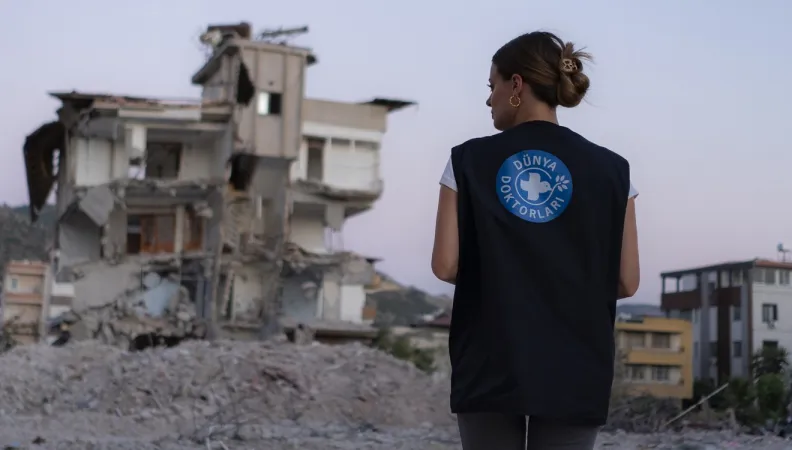
In February 2023, earthquakes rocked Türkiye and Syria, killing more than 50,000 people. They were among the most devastating earthquakes to have struck the region in almost a century, turning cities and towns into rubble and displacing close to 2 million people. We examine the swift action of AFD Group and its partners to help rebuild, and the results, one year on.
In response to the 7.8 magnitude earthquake that destroyed hundreds of thousands of homes, AFD Group is financing a number of projects including one in Hatay, the southernmost province of Türkiye, which provides vulnerable Turks, Syrian refugees and migrants with primary healthcare services and protection, along with mental health and psychological support.
The initiative, financed by AFD’s CSO Initiatives Fund with a €1.3 million grant and led by Dünya Doktorlari (Médecins du Monde Türkiye), is one of five projects financed by AFD Group.
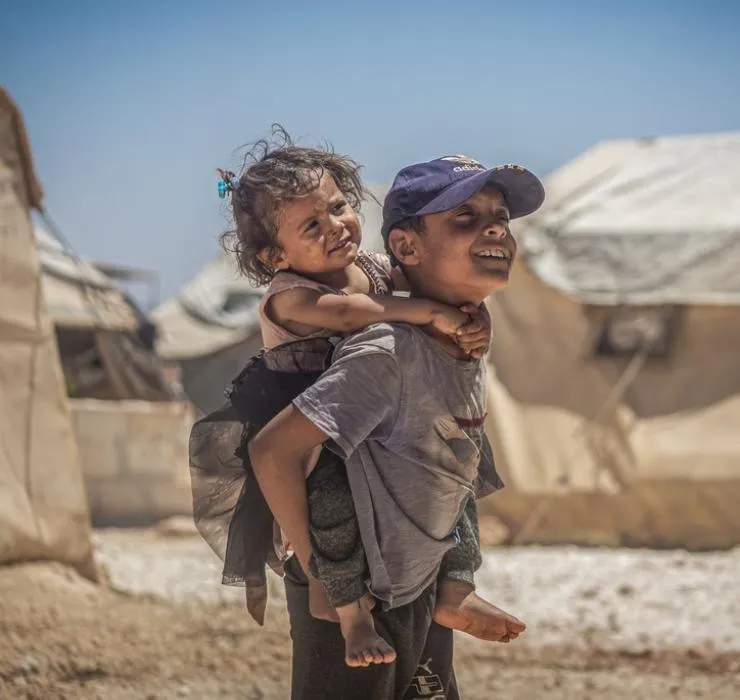
A night of terror
“I remember as if it were yesterday,” says Ahmed, a Syrian refugee who was living in Hatay with his wife and five children. “My family and I were sleeping at home when the earth began to shake. Everything suddenly collapsed around us and we were trapped under the rubble. After hours of anxious waiting, they found us. The rescuers told me that my wife hadn’t survived.” Like Ahmed, many other Turkish and Syrian people lost loved ones in the disaster. The 7.8-magnitude earthquake was followed by a second 7.6-magnitude quake a little further north, destroying more than 200,000 buildings and leaving close to two million people homeless and/or displaced.
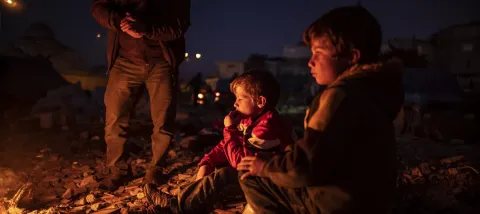 © Olivier Papegnies, Médecins du monde
© Olivier Papegnies, Médecins du monde
Total destruction
“When we managed to get out, there was total chaos,” says Yeşim, mother of a 7-month-old child. “There was no electricity. The entire neighborhood was outside and there was heavy rain. We covered our children. We stayed around a fire until the morning to warm up, as it was very cold.” Yeşim’s baby caught bronchitis during the first difficult nights after the earthquake. She started looking for medical help all over the province. Like countless other survivors, she was unable to find medical services. All the hospitals and health facilities were paralyzed. Some 32 hospitals and 50 health facilities run by CSOs in the region had to stop their activities due to the damage.
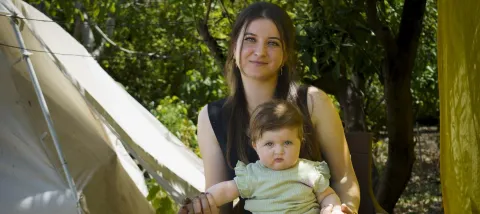 © Médecins du monde Turquie
© Médecins du monde Turquie
Emergency intervention
The CSO Médecins du Monde Türkiye took swift action to provide an emergency response to the victims. Three mobile medical clinics were set up locally to treat the victims in Hatay Province. AFD’s grant has considerably strengthened the capacities of Médecins du Monde Türkiye. The increased mobility of the teams means that they can provide services in the most hard-to-reach areas and get to the most vulnerable and isolated people. “Thankfully, my father got the treatment he needed,” says Cemile. Her father, Ali, survived the earthquake with a leg injury. He was taken care of quickly through the intervention of the mobile units. “There were no minibuses or other public vehicles after the earthquake. Médecins du Monde teams come to check up on my father and provide him with medical care whenever we call them or send them a message. We’re grateful for their efforts.”
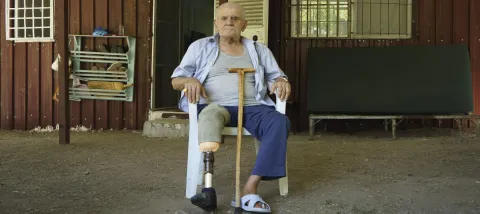 © Médecins du monde Turquie
© Médecins du monde Turquie
Psychological support in a safe space
In addition to the urgent need for medical assistance, this earthquake has been a traumatic experience for Turkish people, especially in the Hatay region. And many children have been plunged into precarious situations. “Parents prefer to leave the area because it isn’t safe and the living conditions are inadequate. That’s why we saw many children in downtown areas in the first days following the earthquake. But when we went into rural areas, we found children with quite serious basic and psychosocial needs,” says Ayşe, psychosocial support manager at Médecins du Monde Turkey. According to OCHA, the United Nations Office for Coordination of Humanitarian Affairs, the increased vulnerability of families living in areas affected by the earthquake also exposes women and girls to risks of gender-based violence, especially sexual abuse and domestic violence. As the majority of staff providing humanitarian assistance and services are men, women are reluctant to report the abuse and talk about their fears and anxieties. AFD is helping Médecins du Monde Turkey run a safe space, primarily to receive women and children. “We need to organize safe spaces where we can give them psychosocial and psychological support,” says Ayşe.
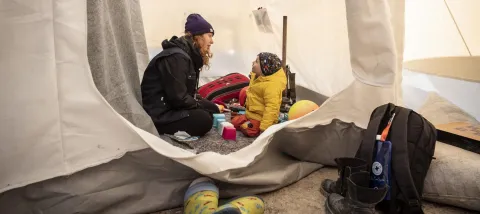 © Olivier Papegnies, Médecins du monde
© Olivier Papegnies, Médecins du monde
A long-term intervention for reconstruction
After the emergency intervention, the project will focus on a post-emergency intervention, with technical training and a phased handover to the local authorities. This second stage of the project aims to reinforce the capacities of institutional actors and stakeholders in Türkiye, and improve the quality and accessibility of healthcare services for the most vulnerable.
This project, implemented by Dünya Doktorlari (Médecins du Monde Türkiye), is part of a broader mobilization by AFD, which is deploying a wide range of tools to support Türkiye’s reconstruction. In addition, four other projects are contributing to reconstruction, including:
- Two grants, each for €1.3 million, to the NGOs MSYD-YSYD and SENED to strengthen their capacities, improve access to healthcare and social services for the people affected, and improve living conditions
- €50 million of financing from AFD to a Turkish development bank to support a green post-earthquake reconstruction and help safeguard and create jobs in the region
- €105 million of financing from Proparco to three Turkish private banks as part of the Türkiye Earthquake Response Program, a €600 million project coordinated by the International Finance Corporation (IFC) and led by several partners to support the SMEs affected
